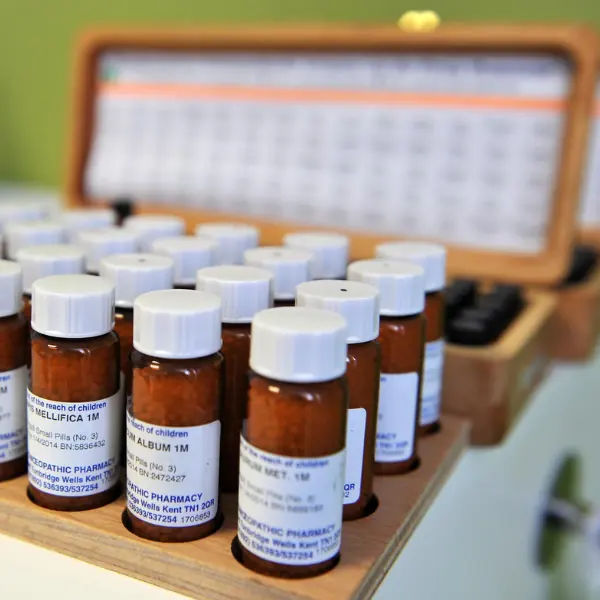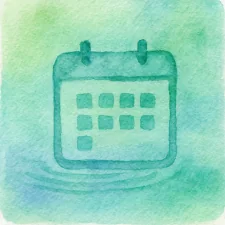Homeopathy
‘The highest ideal of therapy is to restore health rapidly, gently, permanently; to remove and destroy the whole disease in the shortest, surest,least harmful way, according to clearly comprehensible principles.’
Samuel Hahnemann - The Organon

What is Homeopathy?
Science and History
Homeopathy is a system of medicine that when chosen correctly, helps to stimulate the body’s own healing response.
The basic law of homeopathy is similia similibus curentur: ‘let likes be cured with like.’
This means that any substance which has the power to harm when taken in large doses, also has the power to cure when taken in micro doses- Anything that is capable of producing symptoms of disease in a healthy person can cure those symptoms in a sick person. By ‘symptom’ the homeopath means those changes that are felt by the patient subjectively or observed, which may be associated with a particular disease, or state of dis-ease, and which are the outward expression of that state.
Through the efforts of German physician Samuel Hahnemann, homeopathy emerged as a highly systematic, medical science during the 1800s.
Prior to developing homeopathic science, Hannemann had been an esteemed physician and chemist. He was the personal physician to members of the German royalty and the author of one of the most respected texts on chemistry of the day.
Despite his success he left his own orthodox medical practice, because he felt he was doing more harm than good, with the routine use of bloodletting, poisonous doses of mercury and arsenic, and the other often harmful medical practices that were popular during the time.
He was also a scholar of numerous languages and because he had a family to support, he resorted to translating various medical and literary texts.
While translating the work by William Cullen, a leading physiologist of the time Hannemann began to question the authors claims, that the bitter astringent properties of Peruvian bark which contains quinine, accounted for its effectiveness in treating malaria. Hahnemann proved Cullen wrong by preparing an even more bitter and astringent mixture which was useless against malaria.
Deciding to test the physiological effects of Peruvian Bark, Hanneman began taking small doses himself. His body eventually reacted to the drug. To his surprise he developed symptoms very similar to those of malaria. When he stopped taking the preparation, his symptoms resolved. He then wondered whether the curative powers of Peruvian bark resulted from its capacity to create symptoms similar to those of the disease.
By studying the records of accidental poisonings from other commonly used medicines of his time,such as mercury, arsenic, belladonna and silver nitrate, and by testing these poisons on himself and others he found that when taken in overdose the ‘medicines’ caused symptoms similar to those of the illness for which they were used.
He called these tests ‘provings’ and took meticulous notes of how each person reacted to each substance, noting in particular the common themes or patterns of illness that each substance produced. He then confirmed this theory in practice by giving the same substance to a sick patient with similar symptoms or symptom patterns and seeing it act curatively.
Hanneman’s provings formed the basis of a new system of healing which he called homeopathy from the Greek homoios (similar) and pathos (suffering or disease) in order to differentiate it from orthodox medicine,which he called ,Allopathy ‘ meaning ‘opposite suffering.’
Once again Hannemann set up his medical practice,this time using the symptom pictures from his provings as the basis for his prescriptions. He experimented with diluting his medicines to minimise side-effects and developed a new method whereby he diluted the substance in carefully measured steps, shaking it vigourously in between each dilution which he called ‘succussion ‘and the resultant liquid a ‘potentized remedy’. He found that this method created a remedy that had no side-effects and had a stronger curative reaction. In fact, he found the more he diluted and succussed it, the stronger it became.
The Principles
• Simillimum - The remedy is most similar to that which has caused similar symptoms in a healthy person.
• Single remedy – remedies are proven (tested) one at a time and likewise are prescribed on an individual basis.
• Minimum dose – dilution with succussion releases the ‘potency’ (strength) of any substance and makes it a more potent medicine whilst eliminating potential side-effects.
• Whole person – the homeopath takes the emotional, physical and general symptoms into account when prescribing a remedy.
Successful homeopathic treatment results in an overall increase in health and well-being, vitality, mental clarity peace of mind and a renewed affirmation of personal creativity and freedom.
Homeopathy recognises the person as an integrated whole, and is designed to correct the disturbances that exist on physical, emotional, mental and spiritual levels.
-Scope of homeopathy-
Homeopathy has proven to be useful in a wide range of conditions.
Acute conditions are defined by their depth and duration. They are of recent, and sometimes sudden onset and may resolve abruptly within a matter of hours or days. Homeopathy is extremely useful and effective for acute conditions including, swelling, pain, injury, inflammation and fevers.
Homeopathy first achieved fame for acute prescribing in the late 1800s during the devastating epidemics in Europe in America where it proved to be remarkably curative.
Chronic conditions may arise after an acute illness that does not fully resolve itself, or they may have a slower onset developing over months or years .
Homeopathically speaking, chronic also means deep seated, and arising from an underlying pattern of susceptibility.
While allopathic medicine can provide symptomatic relief, or a slowing of the process of chronic disease, homeopathy and other natural therapies have the possibility of a more curative effect by working at a deeper level of the organism.
Constitutional homeopathy treats the person as a totality, in which symptoms of body and mind are perceived as a whole. Classical homeopathy attempts to find the remedy that will match all aspects of the person, the mental emotional state, the metabolic and physiological make up, the body type and genetic predispositions, the disease history and the current symptom picture. When these aspects are taken into account and whether disease symptoms are present or not, homeopathy can be useful as the ultimate preventative medicine eradicating or neutralising the patterns of susceptibility and tendency,long before they express themselves as a specific illness.
What to expect during my first homeopathic appointment?
The initial consultation appointment may take up to an hour and a half. To be able to choose an individualised remedy for you, I will ask you a series of questions, about your present health issues, your health challenges in the past, as well as the illnesses that run in your family. I will need to get an understanding of your mental, emotional and physical state, as well as some general information that will help to find the correct homeopathic remedy.
Frequently Asked Questions
Answers to common questions about Homeopathy
Homeopathy is safe for everyone, including babies, children, and pregnant women. Homeopathic preparations are diluted to such a degree that all toxicity of a substance they were made out of has been removed, and there are no unwanted side effects.
No, you can continue taking your medications while taking homeopathic remedies.
Among the most common conditions that homeopathic treatment can be helpful with are some acute ( colds and flus, coughs, ear infection, bladder infection) as well as chronic conditions (asthma, arthritis, gastro-intestinal disorders, menstrual disorders, anxiety and depression), and so much more.
If an acute complaint is being treated, you may start feeling better shortly after taking a few doses of the homeopathic remedy. In case of a chronic health issue, it might take up to 4 weeks before you see an improvement. As chronic conditions develop gradually, they also require more time and commitment to cure.
The efficacy of homeopathy is a topic of ongoing debate. here you will find a list of clinical trials that have been done on various conditions. Speak with people who have used homeopathy and ask about their experience. Also, ask the homeopath you are considering working with about the progress their clients have made. These are good places to start.
Book Your Homeopathy Consultation
Ready to explore natural healing with a qualified homeopath? Book your appointment today and start your journey to better health in Taranaki.
Book Online